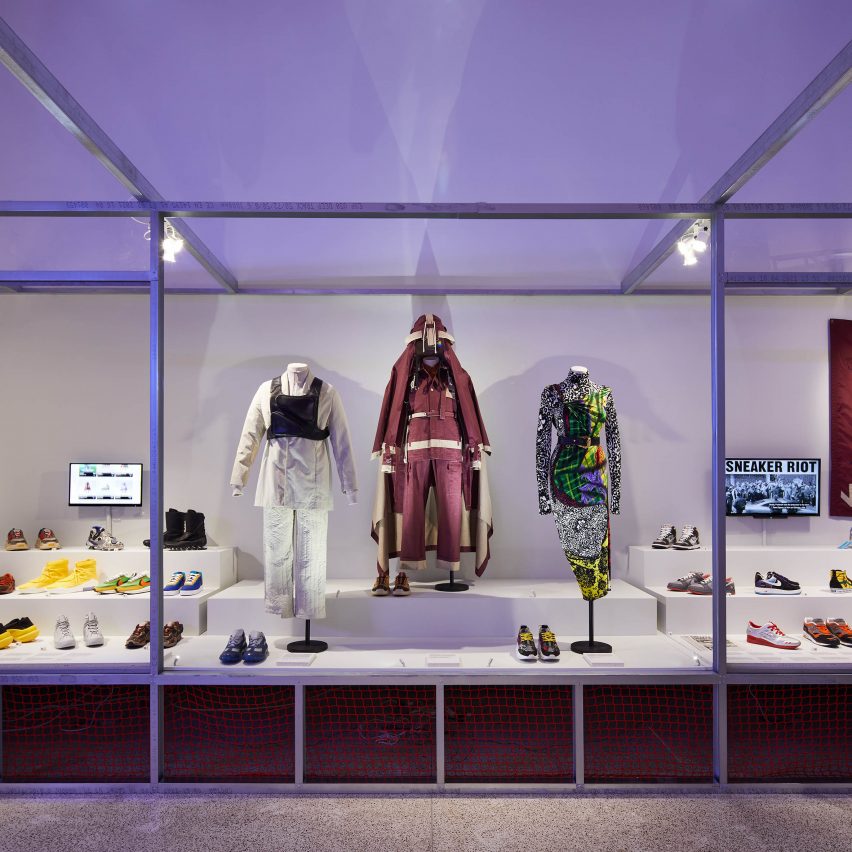
The Design Museum's latest exhibition, Sneakers Unboxed, showcases the popular shoe as a design object. Curator Ligaya Salazar picks five exhibits that show how the trainer has been at the forefront of material and user innovation.
On show at London's Design Museum until late October, Sneakers Unboxed: Studio to Street brings together instantly recognisably shoes like the Converse Chuck Taylor All-Star, collectibles like the Yeezy 350 Zebra and historic designs like 1984's Adidas Micropacer, the first shoe to tout an embedded computer for fitness tracking.
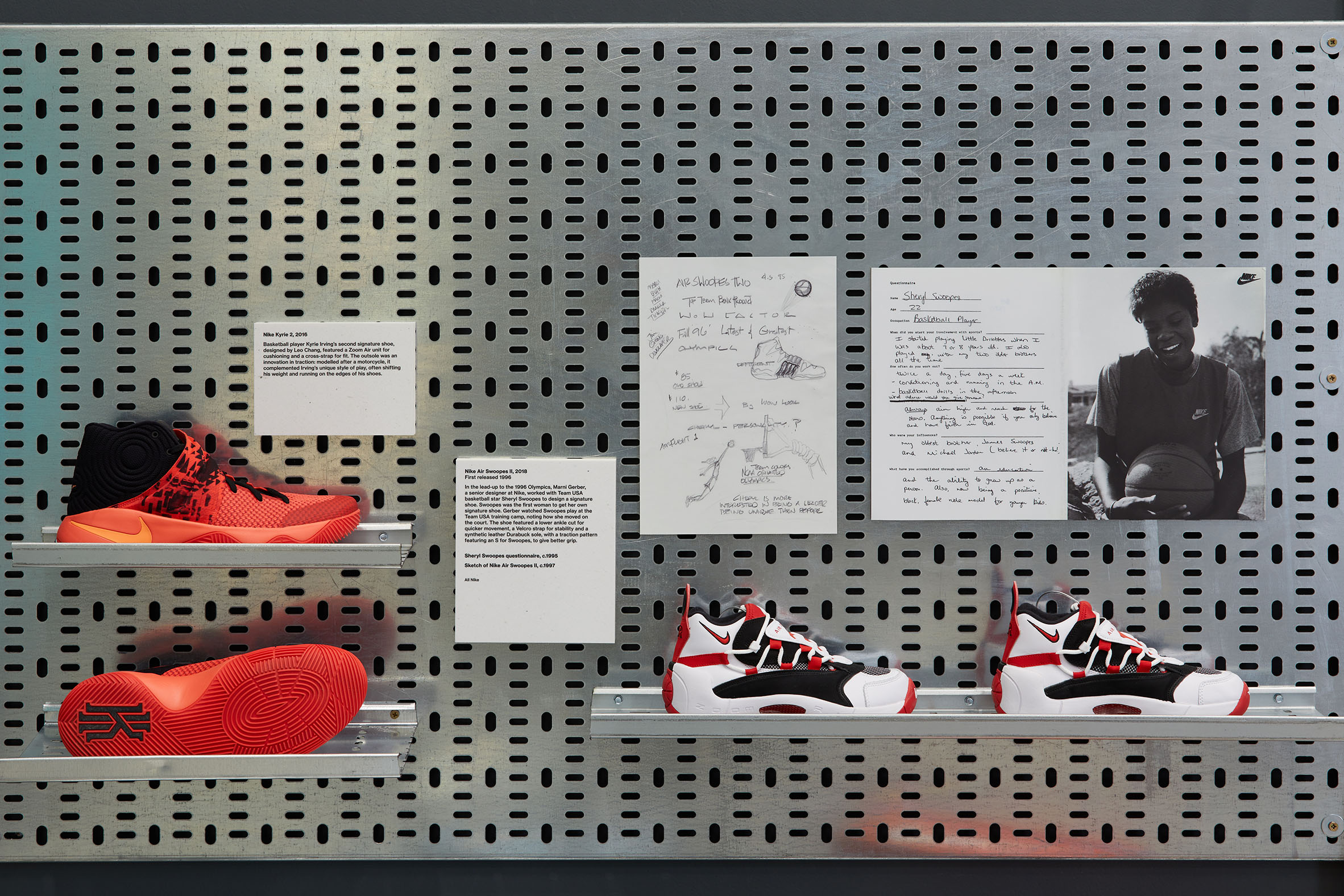
The exhibition also looks at how sneakers have tied into social movements and youth cultures across the globe, starting with New York's basketball and hip-hop communities in the 1970s, and have gone on to spawn a resale market worth more than $6 billion.
In doing so, it puts the spotlight on a sector that has not always been taken seriously by institutions.
"A footwear staple for style, performance and comfortwear, Sneakers Unboxed: Studio to Street reveals the role young people from diverse backgrounds have played in making individual sneakers into style icons and in driving an industry now worth billions," said Salazar.
The exhibition also explores how sneakers have provided a unique platform for experimentation, both in the past and in the present moment.
Recent objects show designers innovating with technologies and processes such as biodesign, circularity and non-animal biodegradable leather.
"The exhibition also gives behind-the-scenes insight into new upcycling and sustainable design practices, unseen prototypes predicting the future of performance design, and streetwear and fashion collaborations that changed the face of the industry," continued Salazar.
Below, Salazar shares her picks of five highlights from the exhibition that represent the biggest strides in material and user innovation.
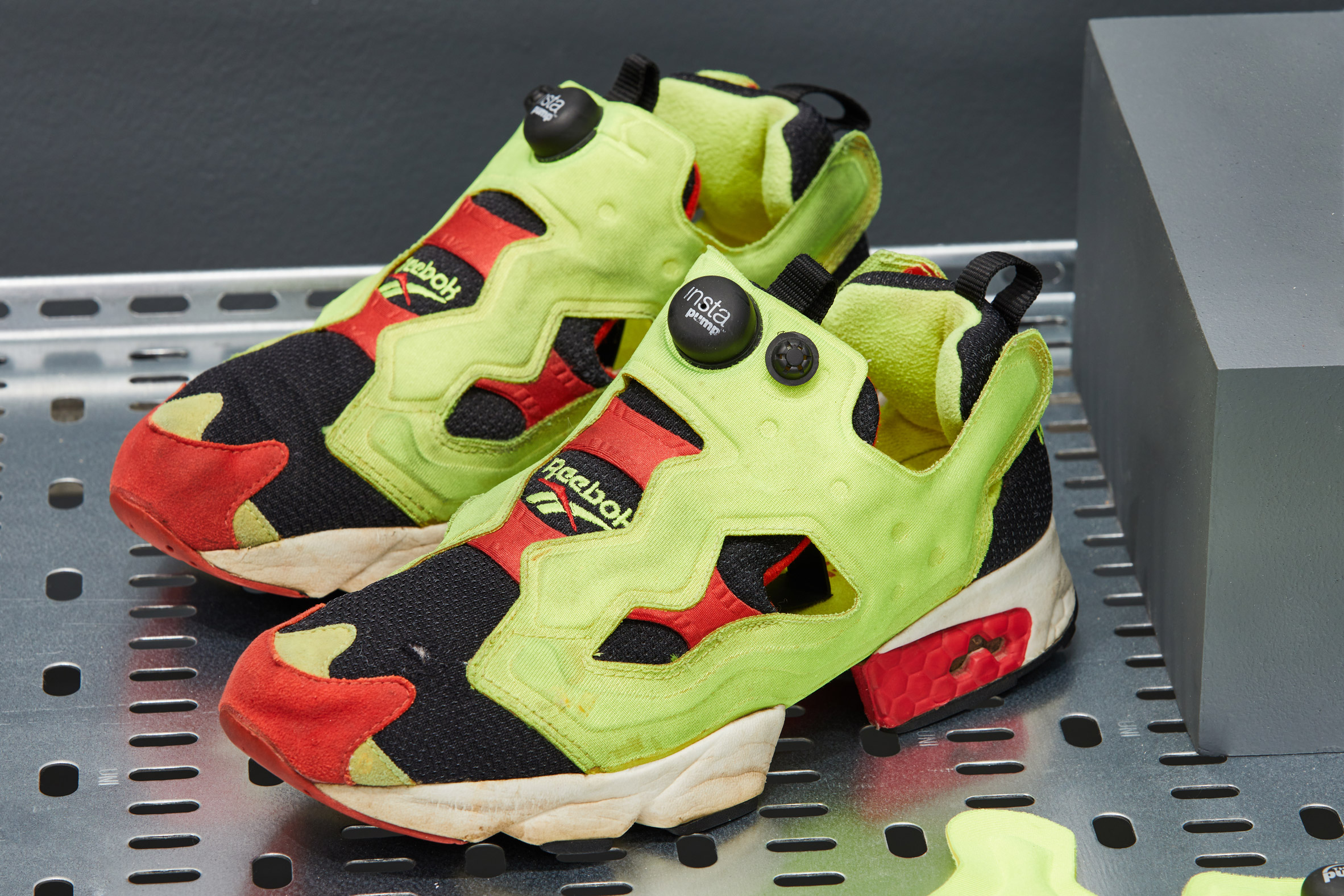
Reebok InstaPump Fury, 1994
"Creating a proper fit that is adjustable and holds your foot in place without being restrictive has been an important consideration throughout the history of sneaker design. This was first addressed most simply with laces.
"Both the Reebok InstaPump Fury and the Nike Go FlyEase use design innovation to enable a laceless fit that is both more functional and more accessible.
"In the 'laceless' race of the 1990s, the InstaPump Fury marked a breakthrough. Designed by Steven Smith and Paul Litchfield, it used an air bladder inside the upper to alter the fit, which the wearer could inflate by pushing a pumping unit on the tongue."
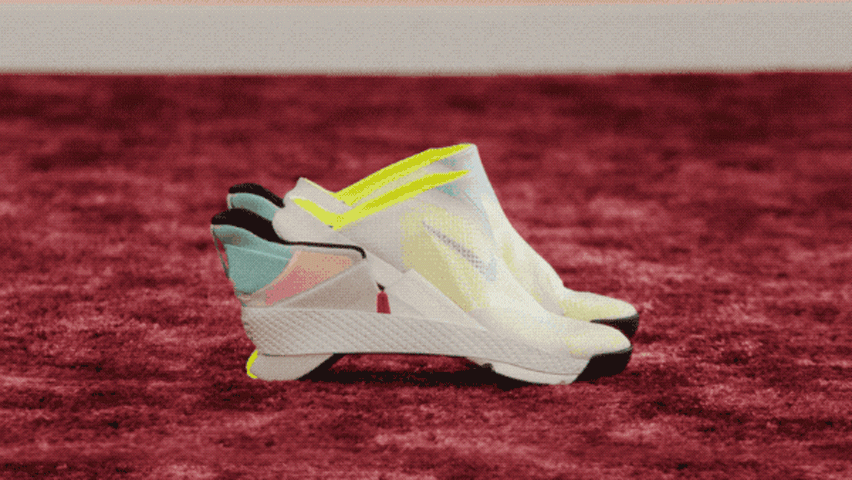
"The innovation at the heart of the FlyEase is a one-pull fit system and collapsible step-in heel.
"This means the wearer can get in and out of the shoes without using their hands, eliminating the need for laces or other fasteners and therefore making the shoe more accessible."
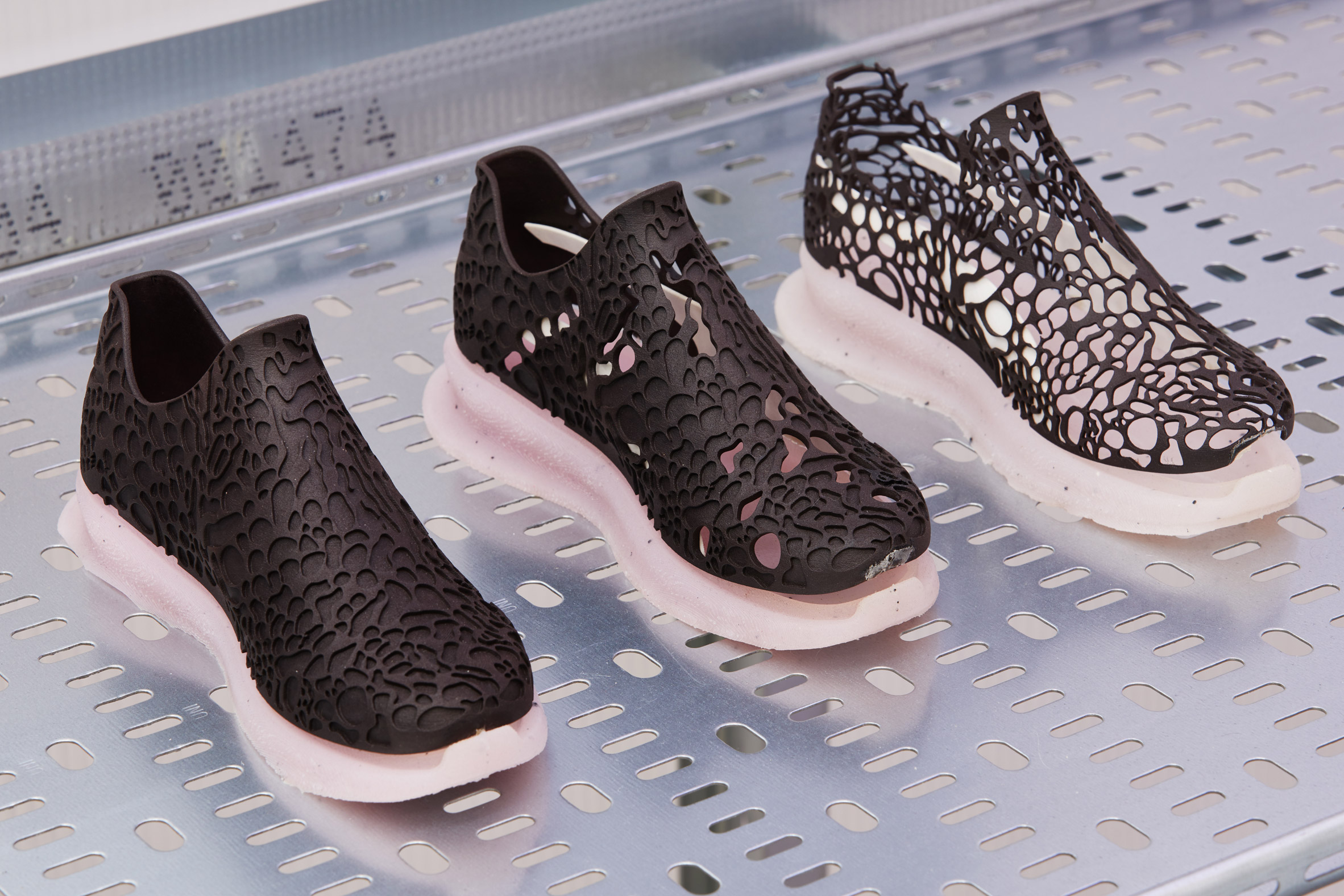
PUMA x MIT Design Lab x Biorealize Breathing Shoe, 2018
"MIT Design Lab, under the direction of Yihyun Lim, and Puma formed a 'Collaboratory' in 2016 to bring disruptive ideas from the laboratory closer to consumers through applied design research and development. The Collaboratory model takes students, researchers and partners from Puma Innovation through all the phases of design research. By merging insights and expertise from academia and industry, it aims to push forward the development of sportswear.
"The prototypes of their 'Breathing Shoe', was developed in a collaboration with Orkan Telhan from Biorealize, a biodesign, research and manufacturing company. It changes in response to their wearer.
"The upper is made from a material moulded to include cavities that are filled with bacteria. Once activated by heat, the bacteria begins to eat the material to create a unique pattern, enabling air to pass through the hottest areas."
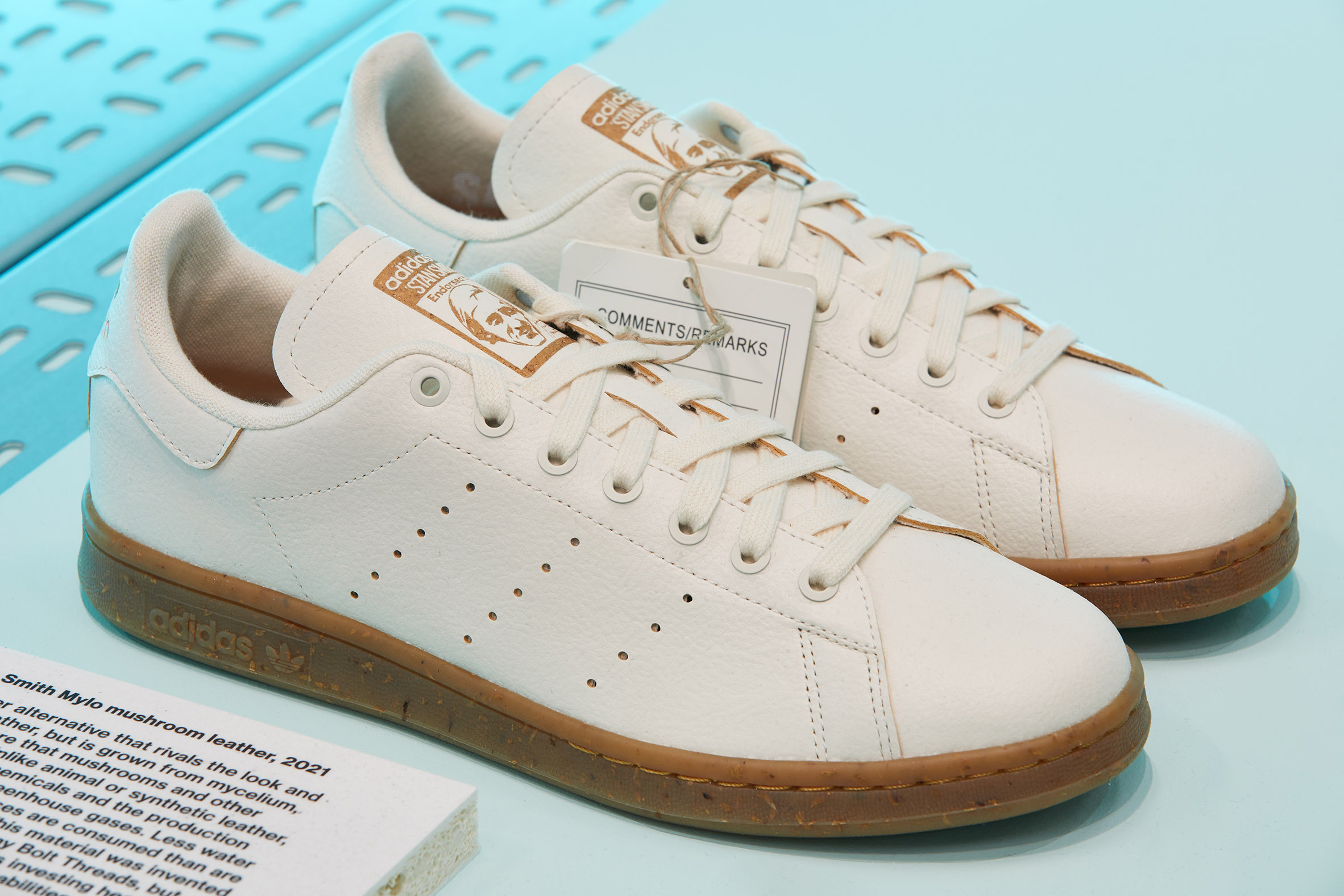
Adidas Stan Smith Mylo mushroom leather, 2021
"Designing out waste and pollution, and keeping products and materials in use, are two key principles of circular design. Using biodegradable materials in the production process and developing less harmful alternatives, such as animal-free leathers, are some of the more sustainable choices sneaker brands are making.
"Mylo is a leather alternative that rivals the look and feel of animal leather, but is grown from mycelium, the thread-structure that mushrooms and other fungi use to grow. Unlike animal or synthetic leather, it is free of noxious chemicals and the production process emits fewer greenhouse gases. Less water and fewer natural resources are consumed than are needed to rear livestock.
"This material was invented by US biotechnology company Bolt Threads, but Adidas is one of several brands investing heavily to help level up the production capabilities of Mylo."
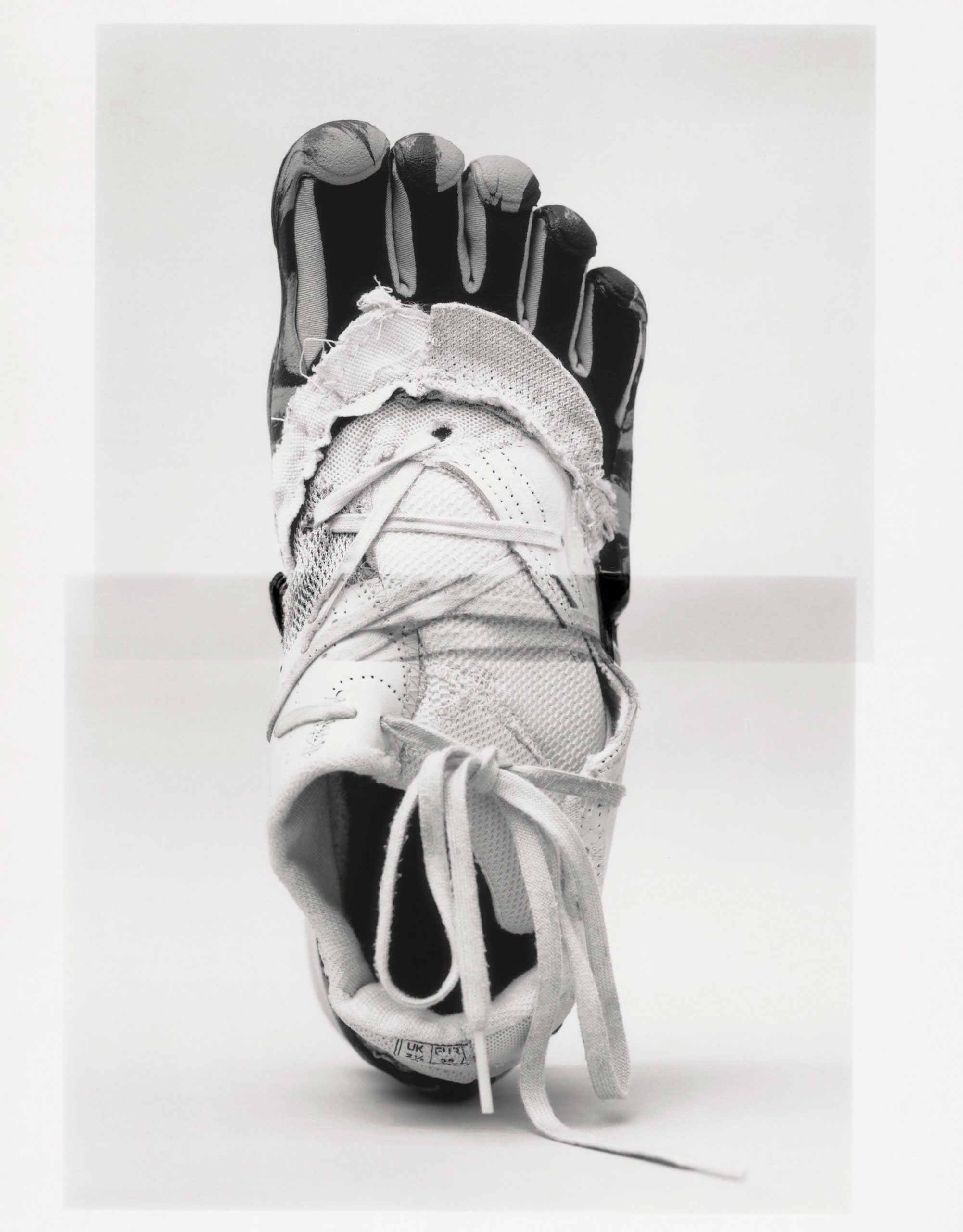
Helen Kirkum x Matthew Needham, MN ED31 ØYEBLIKK/Central Saint Martins MA Graduate Collection, 2020
"Helen Kirkum has pioneered deconstruction and upcycling in the sneaker industry, creating bespoke sneakers using recycled and deadstock materials. She began experimenting with 'unmaking' shoes in 2016, while studying for an MA at the Royal College of Art, where her graduate collection celebrated the process of wearing and making.
"She has created unique pairs for a catwalk presentation by fashion house Casely-Hayford and worked with Adidas on a scaleable upcycled model in 2019. Most recently, she worked with designer Matthew Needham using offcuts and Vibram FiveFingers deadstock."
Sneakers Unboxed opened at the Design Museum in London on 18 May 2021 and will continue until 24 October.
Exhibition photography is by Ed Reeve.
The post Design Museum curator picks five most innovative trainers from Sneakers Unboxed appeared first on Dezeen.
from Dezeen https://ift.tt/34xmgc5
No comments:
Post a Comment